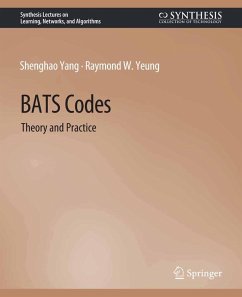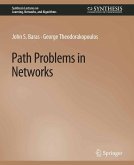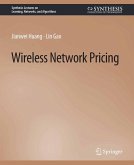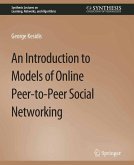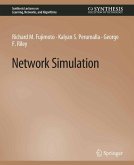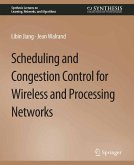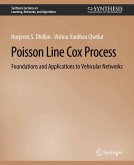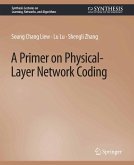A BATS code consists of an outer code and an inner code. As a matrix generalization of a fountain code, the outer code generates a potentially unlimited number of batches, each of which consists of a certain number (called the batch size) of coded packets. The inner code comprises (random) linear network coding at the intermediate network nodes, which is applied on packets belonging to the same batch. When the batch size is 1, the outer code reduces to an LT code (or Raptor code if precode is applied), and network coding of the batches reduces to packet forwarding. BATS codes preserve the salient features of fountain codes, in particular, their rateless property and low encoding/decoding complexity. BATS codes also achieve the throughput gain of random linear network coding. This book focuses on the fundamental features and performance analysis of BATS codes, and includes some guidelines and examples on how to design a network protocol using BATS codes.
Dieser Download kann aus rechtlichen Gründen nur mit Rechnungsadresse in A, B, BG, CY, CZ, D, DK, EW, E, FIN, F, GR, HR, H, IRL, I, LT, L, LR, M, NL, PL, P, R, S, SLO, SK ausgeliefert werden.

